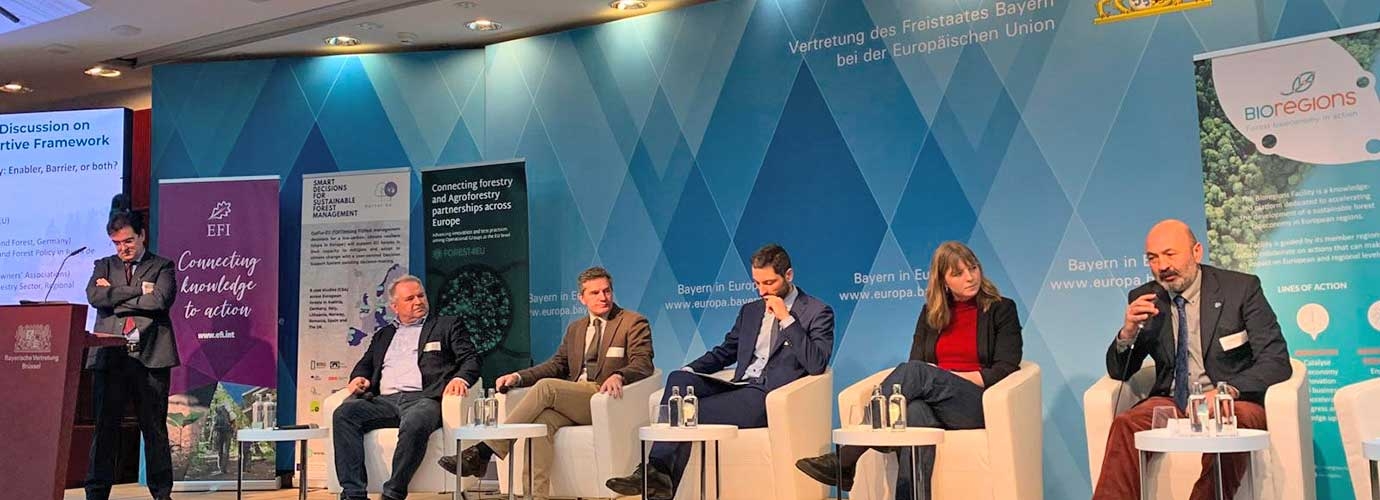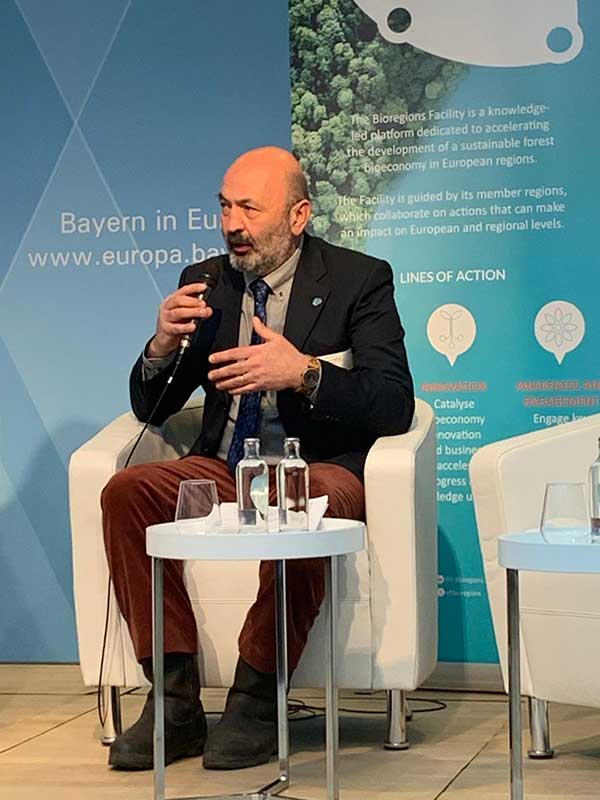Regione Toscana brings the MMFN to the 6th Edition of the Forest Innovation Workshop in Brussel

As Regione Toscana, which has managed the MMFN Secretariat since 2019, we participated in the 6th Edition of the Forest Innovation Workshop and the OptFor-EU Mid-Term Conference: INFORM-PRIORITIZE-COLLABORATE: Building a Sustainable Forest Future through Regional Cooperation and Innovation.
The event took place in Brussels on March 11–12 and was organized by the ERIAFF Network (European Regions for Innovation in Agriculture, Food, and Forestry), the European Forest Institute (EFI) and its Bioregions Facility, the European Confederation of Forest Owners (CEPF), the European State Forest Association (EUSTAFOR), the European Farmers and Agri-Cooperatives (COPA-COGECA), the European Landowners’ Organization (ELO), and Euromontana, in collaboration with the EU projects FOREST4EU and OptFor-EU.
The event aimed to explore the latest innovations, discuss regional priorities, and foster collaboration among key stakeholders in the forest-based sector. Regions play a crucial role in implementing EU policies related to forests and their value chains. To effectively address society’s diverse demands on our forests, both technical and social innovations are essential.
This gathering showcased ongoing and planned regional initiatives, inspiring other territories to adopt best practices while strengthening cross-border cooperation.
Our Secretary Toni Ventre and Elisabetta Gravano (Vice-Secretary) were particularly involved in the Regional Authorities Roundtable Discussion on priorities for innovation and a supportive framework. Together with representatives from other EU Regions, they were asked to share their experiences on: good examples or success stories in supporting forest innovation but also some reflections on barriers faced when it comes to promoting or deploying forest innovation; programme or funding tool (EU, National or Regional) that playing a relevant role in supporting forest innovation; expectations on the next programming period, particularly on CAP, concerning the support to forest innovation and the role of regions, focusing on the role of interregional and cross-border cooperation and synergies.
The Secretary highlighted the FOR.SA Project, led by the Montagne Fiorentine Model Forest, as a significant example of forest innovation. This initiative focused on the multifunctional use of forests, particularly in developing forest therapy pathways. It brought together municipalities, research institutions, environmental guides, forest owners, agricultural enterprises, and social cooperatives to enhance the social and health benefits of forests beyond their traditional economic and environmental roles.
 Regarding funding, the Secretary emphasized the importance of Horizon 2020 and LIFE programs in supporting forest-related projects, including those involving Model Forests. The EPI-AGRI and Operational Groups were also mentioned as effective tools for transferring innovation in forestry. Additionally, Italy’s National Forestry Strategy funds have played a key role in sustaining innovations beyond the duration of EU-funded projects.
Regarding funding, the Secretary emphasized the importance of Horizon 2020 and LIFE programs in supporting forest-related projects, including those involving Model Forests. The EPI-AGRI and Operational Groups were also mentioned as effective tools for transferring innovation in forestry. Additionally, Italy’s National Forestry Strategy funds have played a key role in sustaining innovations beyond the duration of EU-funded projects.
Looking ahead to the next programming period, the Secretary stressed the need for projects to strike a balance between research and practical application, ensuring innovations reach real-world forestry stakeholders. There is a call for more demonstration-oriented projects that bring forest-based innovations closer to market applications. Furthermore, regions should take on a stronger role in guiding innovation by maintaining alignment with regional priorities. Cross-border cooperation is also seen as essential, provided that shared tools, methodologies, and mechanisms are effectively developed and applied across different regions.
Finally, the broader role of Model Forests and forestry in the future was discussed in the context of increasing climate challenges. While the threats posed by climate change and geopolitical uncertainties are significant, there is growing awareness of the importance of Sustainable Forest Management. Scientific advancements and collaborative efforts, including those driven by Model Forests, are expected to play a key role in addressing these challenges. The forestry sector, deeply connected to territories, landscapes, and communities, must expand its influence and impact within EU policymaking to ensure that forests receive the attention and resources they deserve.


